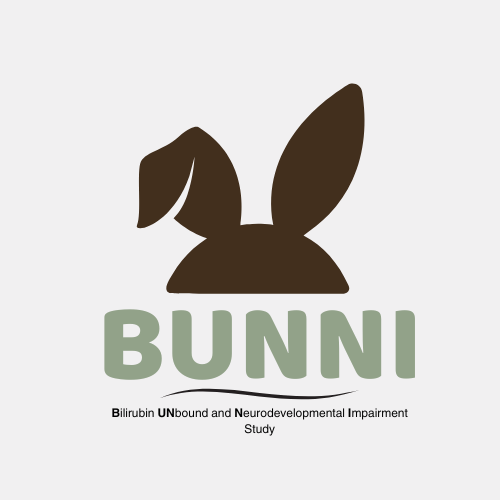BUNNI Study

Preterm infants have increased bilirubin levels in the blood after birth. Bilirubin is what causes yellowing of the skin called jaundice. If bilirubin levels get too high, they can cause brain damage and affect childhood development. Doctors around the world measure the total serum bilirubin in the blood to help guide treatments in preterm babies such as light therapy (phototherapy). A new way to measure bilirubin is to measure unbound bilirubin (the part not bound to albumin). This may provide a more accurate description of whether a baby has a harmful bilirubin level and improve the ability of doctors to know when to treat.
In this study, unbound bilirubin is measured from three to seven days after birth with routine morning blood samples for NICU care. Babies’ care is not affected by participating in the study. We perform a detailed hearing test, called Brainstem Auditory Evoked Response (BAER) testing, before NICU discharge and a developmental test called the Bayley Scales of Infant Development at the 2-year clinic exam.
Purpose & Aim
Population of the study: Infants <27 weeks’ gestation or ≤750 grams birthweight
Measurements: Unbound bilirubin levels
Outcomes: Wave V latency on BAER, Bayley Scales of Infant Development composite cognitive and motor scores
Trial Information
Target Enrollment: 150
Funder: Internal
Duration of Study: June 2024 – December 2025
Study Principal Investigator

Assistant Professor
Department of Pediatrics, Division of Neonatology
Institute for Clinical Research and Learning Health Care
6431 Fannin, MSB 3.236
Houston, TX 77030
(p): 713-500-6422
[email protected]
Links
Protocol
Provider and Nursing Instructions
Parent Information Sheet